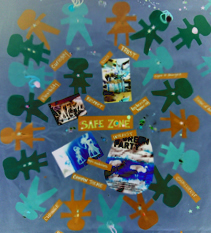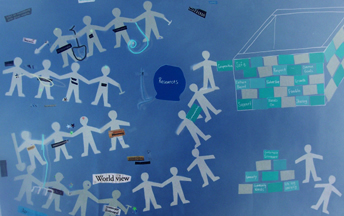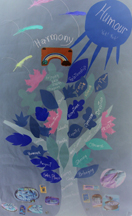Welcome to the Learning Circles Project website.
Note: The Learning Circles Project happened in 2004-2006. You may find some of the links to external websites do not work any longer. Some of the organizations we worked with have changed or are no longer funded.
This website is for people who are interested
in community learning for adults.
This project is about how
adults can learn about a variety of topics in an inclusive environment.
The people who worked on this project came together as literacy
workers.
The project is
a place where all adult education workers, learners, researchers,
and policy makers can share knowledge, learn from each other
and develop understandings, strategies and policies for inclusive,
participatory, democratic and sustainable 21st-century learning.
Learning is essential to who we are.
Most of our learning takes
place in daily life. We also create
places to focus learning. Some of these places are academic
institutions of learning: schools, colleges, universities. There
are also community places of learning which are quite different
from academic institutions.
This project looks at a
kind of learning group that is not widely recognized, but which
provides an exciting alternative to academic learning. In
these groups, which we call “learning circles,” adults
with various levels of formal education and quite different histories
of learning, come together to share and create new knowledge.
In our study of learning circles we:
The website was developed through a
two-year study of learning circles in Canada funded by the National
Literacy Secretariat (NLS).
The researchers worked
collaboratively with
The Lifelong Learning Working Group,
which is itself a learning circle.
This was a Metro Toronto Movement for Literacy (MTML)
project supported by a partnership among
MTML,
The
Bay of Fundy Marine Resource Centre
and the National Indigenous
Literacy Association (NILA).
This website was designed and built
by Tracey Mollins
and is hosted and supported
by the National Adult
Literacy Database (NALD).
Thanks to Some Random Dude for the Bitcons and Sanscons.















 National
Literacy Secretariat
National
Literacy Secretariat 

 NALD
NALD